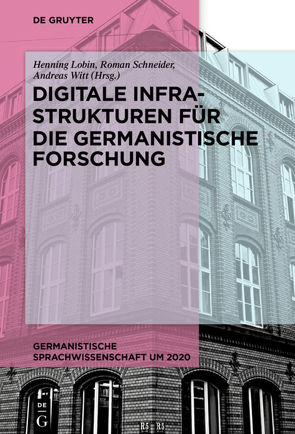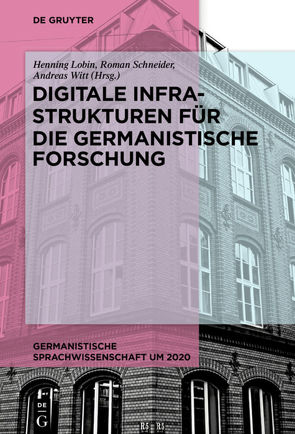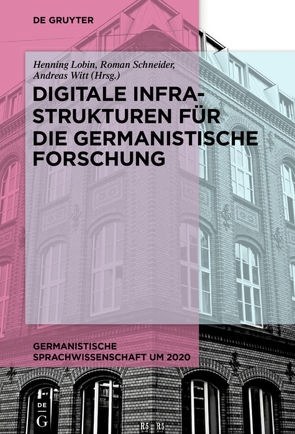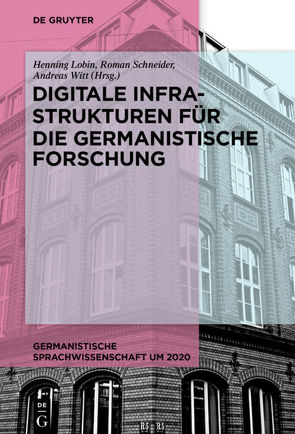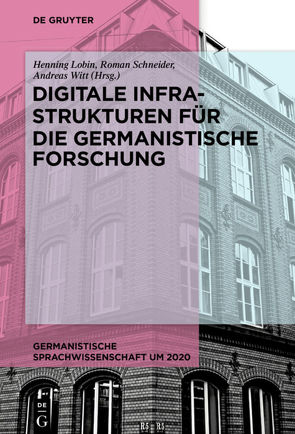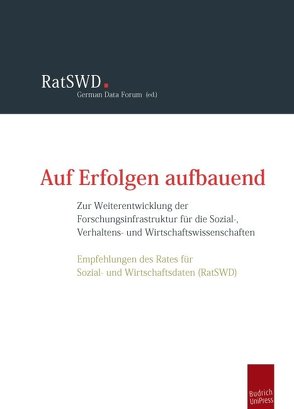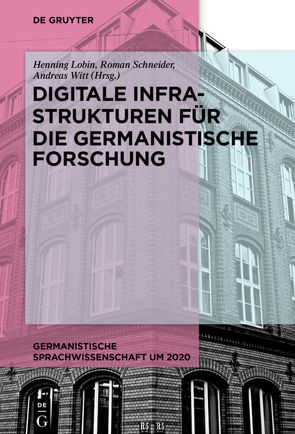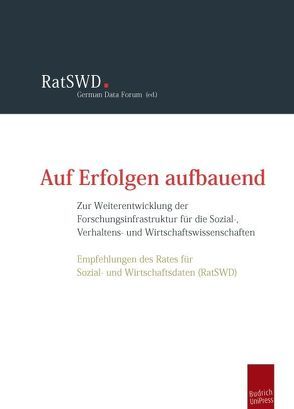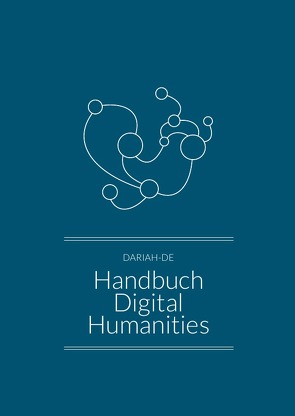Aktualisiert: 2023-05-29
> findR *
Aktualisiert: 2023-05-29
> findR *
Aktualisiert: 2023-05-29
> findR *
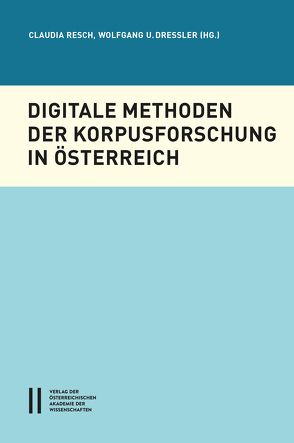
The use of corpora is indispensable in “Digital Humanities”. In order to achieve valid and meaningful insights researchers must be familiar with the build-up, coding and analysis of electronic corpora.
This volume demonstrates the breadth of corpus-based and corpus-guided research in Austria. With these selected contributions the editors open a wide field of different approaches. These include methodological reflections as well as the development and evaluation of standards and of new procedures for data modelling. The individual contributions present representative language resources built up and investigated in Austria as well as their concepts of coding and analysis. Via concrete research questions and exemplary analyses they demonstrate how digital corpora can provide new insights in diverse areas.
The volume informs about various types of corpora, thus about historical and contemporary corpora, written and oral corpora, standard and non-standard corpora, child and adult corpora, learner corpora, media corpora, etc. It has offered researchers the opportunity to report on their experiences in corpus research. A final aim is to stimulate an intensification of corpus use and the expansion of digital methods in the humanities.
Aktualisiert: 2023-05-12
> findR *
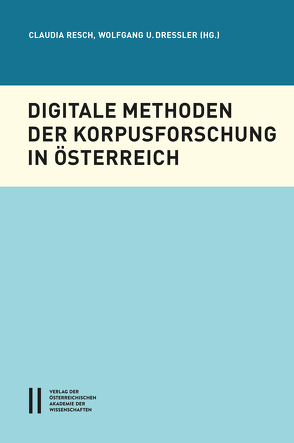
The use of corpora is indispensable in “Digital Humanities”. In order to achieve valid and meaningful insights researchers must be familiar with the build-up, coding and analysis of electronic corpora.
This volume demonstrates the breadth of corpus-based and corpus-guided research in Austria. With these selected contributions the editors open a wide field of different approaches. These include methodological reflections as well as the development and evaluation of standards and of new procedures for data modelling. The individual contributions present representative language resources built up and investigated in Austria as well as their concepts of coding and analysis. Via concrete research questions and exemplary analyses they demonstrate how digital corpora can provide new insights in diverse areas.
The volume informs about various types of corpora, thus about historical and contemporary corpora, written and oral corpora, standard and non-standard corpora, child and adult corpora, learner corpora, media corpora, etc. It has offered researchers the opportunity to report on their experiences in corpus research. A final aim is to stimulate an intensification of corpus use and the expansion of digital methods in the humanities.
Aktualisiert: 2023-05-12
> findR *
Aktualisiert: 2023-03-30
> findR *
Aktualisiert: 2023-03-27
> findR *
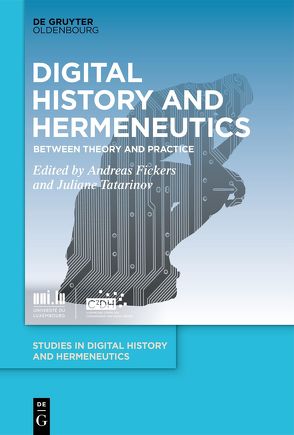
As a result of rapid advancements in computer science during recent decades, there has been an increased use of digital tools, methodologies and sources in the field of digital humanities. While opening up new opportunities for scholarship, many digital methods and tools now used for humanities research have nevertheless been developed by computer or data sciences and thus require a critical understanding of their mode of operation and functionality.The novel field of digital hermeneutics is meant to provide such a critical and reflexive frame for digital humanities research by acquiring digital literacy and skills. A new knowledge for the assessment of digital data, research infrastructures, analytical tools, and interpretative methods is needed, providing the humanities scholar with the necessary munition for doing critical research. The Doctoral Training Unit "Digital History and Hermeneutics" at the University of Luxembourg applies this analytical frame to 13 PhD projects. By combining a hermeneutic reflection on the new digital practices of humanities scholarship with hands-on experimentation with digital tools and methods, new approaches and opportunities as well as limitations and flaws can be addressed.
Aktualisiert: 2021-04-26
> findR *
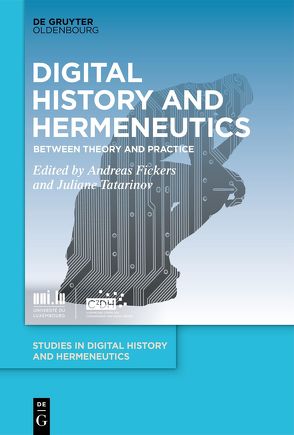
As a result of rapid advancements in computer science during recent decades, there has been an increased use of digital tools, methodologies and sources in the field of digital humanities. While opening up new opportunities for scholarship, many digital methods and tools now used for humanities research have nevertheless been developed by computer or data sciences and thus require a critical understanding of their mode of operation and functionality.The novel field of digital hermeneutics is meant to provide such a critical and reflexive frame for digital humanities research by acquiring digital literacy and skills. A new knowledge for the assessment of digital data, research infrastructures, analytical tools, and interpretative methods is needed, providing the humanities scholar with the necessary munition for doing critical research. The Doctoral Training Unit "Digital History and Hermeneutics" at the University of Luxembourg applies this analytical frame to 13 PhD projects. By combining a hermeneutic reflection on the new digital practices of humanities scholarship with hands-on experimentation with digital tools and methods, new approaches and opportunities as well as limitations and flaws can be addressed.
Aktualisiert: 2021-04-26
> findR *
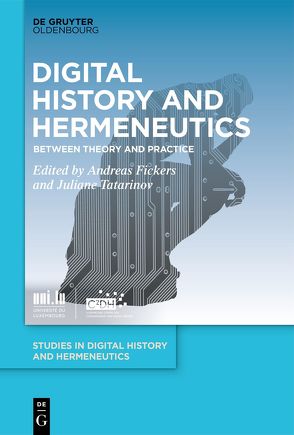
As a result of rapid advancements in computer science during recent decades, there has been an increased use of digital tools, methodologies and sources in the field of digital humanities. While opening up new opportunities for scholarship, many digital methods and tools now used for humanities research have nevertheless been developed by computer or data sciences and thus require a critical understanding of their mode of operation and functionality.The novel field of digital hermeneutics is meant to provide such a critical and reflexive frame for digital humanities research by acquiring digital literacy and skills. A new knowledge for the assessment of digital data, research infrastructures, analytical tools, and interpretative methods is needed, providing the humanities scholar with the necessary munition for doing critical research. The Doctoral Training Unit "Digital History and Hermeneutics" at the University of Luxembourg applies this analytical frame to 13 PhD projects. By combining a hermeneutic reflection on the new digital practices of humanities scholarship with hands-on experimentation with digital tools and methods, new approaches and opportunities as well as limitations and flaws can be addressed.
Aktualisiert: 2021-04-26
> findR *
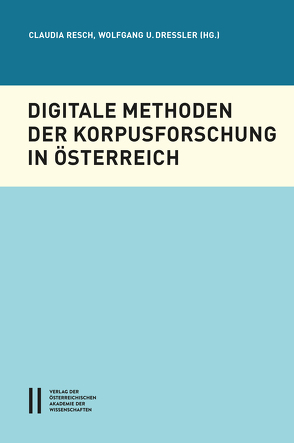
The use of corpora is indispensable in “Digital Humanities”. In order to achieve valid and meaningful insights researchers must be familiar with the build-up, coding and analysis of electronic corpora.
This volume demonstrates the breadth of corpus-based and corpus-guided research in Austria. With these selected contributions the editors open a wide field of different approaches. These include methodological reflections as well as the development and evaluation of standards and of new procedures for data modelling. The individual contributions present representative language resources built up and investigated in Austria as well as their concepts of coding and analysis. Via concrete research questions and exemplary analyses they demonstrate how digital corpora can provide new insights in diverse areas.
The volume informs about various types of corpora, thus about historical and contemporary corpora, written and oral corpora, standard and non-standard corpora, child and adult corpora, learner corpora, media corpora, etc. It has offered researchers the opportunity to report on their experiences in corpus research. A final aim is to stimulate an intensification of corpus use and the expansion of digital methods in the humanities.
Aktualisiert: 2023-02-23
> findR *
Die Bedeutung einer soliden Datengrundlage für die Sozial- und Wirtschaftswissenschaften wie für die Politik ist unumstritten. Empirische Forschung ist heutzutage unverzichtbar für die Entwicklung von Lösungen zu den größten gesellschaftlichen Herausforderungen, wie zum Beispiel Klimawandel, Armut und demographischer Wandel.
Aktualisiert: 2023-04-01
> findR *
Aktualisiert: 2023-03-27
> findR *
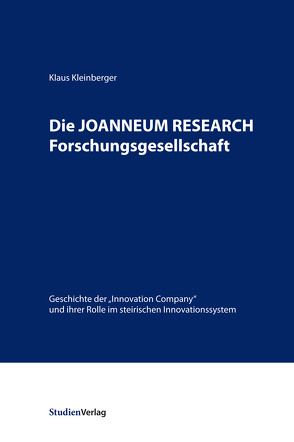
Die JOANNEUM RESEARCH bildet heute die zweitgrößte außeruniversitäre Einrichtung angewandter Forschung Österreichs. Ihre Ursprünge finden sich bereits in den 1950er und frühen 1960er Jahren, als vom Land Steiermark finanzierte Forschungsvereine eingerichtet wurden. Ziel war es, die notwendige, aber kostspielige Forschungsinfrastruktur sowohl an den steirischen Hochschulen als auch für Anwendungen in der Landesverwaltung und für Unternehmen sicherzustellen. Ab Beginn der 1970er Jahre erweiterten sich deren Forschungsgebiete und die Anzahl der Institute nahm zu. Das Forschungszentrum Graz und die Forschungsgesellschaft Joanneum wurden als Dachorganisationen eingerichtet, ehe Ende der 1980er Jahre eine Neuausrichtung mit Gründung der heutigen JOANNEUM RESEARCH Forschungsgesellschaft mbH folgte. Mit einem Fokus auf angewandte Forschung und Technologieentwicklung nimmt diese eine Schlüsselfunktion im regionalen Technologietransfer ein und entwickelte sich zu einem aktiven Netzwerkknoten im steirischen Innovationssystem. Für die unternehmenshistorische Analyse wurde erstmals vielfältiges Archivmaterial aufgearbeitet, zusätzlich wurden Oral History-Interviews mit zentralen Personen geführt. So werden die laufenden Anpassungen und organisatorischen Entwicklungen der Institution erfasst, die sowohl auf den technologischen Wandel als auch auf die Wechselwirkungen und Einflussnahmen seitens der Wissenschaft, der Wirtschaft und der Politik zurückzuführen sind.
Aktualisiert: 2020-05-01
> findR *
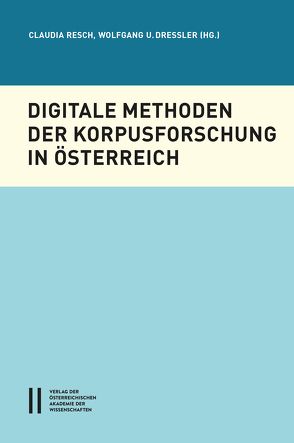
The use of corpora is indispensable in “Digital Humanities”. In order to achieve valid and meaningful insights researchers must be familiar with the build-up, coding and analysis of electronic corpora.
This volume demonstrates the breadth of corpus-based and corpus-guided research in Austria. With these selected contributions the editors open a wide field of different approaches. These include methodological reflections as well as the development and evaluation of standards and of new procedures for data modelling. The individual contributions present representative language resources built up and investigated in Austria as well as their concepts of coding and analysis. Via concrete research questions and exemplary analyses they demonstrate how digital corpora can provide new insights in diverse areas.
The volume informs about various types of corpora, thus about historical and contemporary corpora, written and oral corpora, standard and non-standard corpora, child and adult corpora, learner corpora, media corpora, etc. It has offered researchers the opportunity to report on their experiences in corpus research. A final aim is to stimulate an intensification of corpus use and the expansion of digital methods in the humanities.
Aktualisiert: 2023-02-23
> findR *
Die Bedeutung einer soliden Datengrundlage für die Sozial- und Wirtschaftswissenschaften wie für die Politik ist unumstritten. Empirische Forschung ist heutzutage unverzichtbar für die Entwicklung von Lösungen zu den größten gesellschaftlichen Herausforderungen, wie zum Beispiel Klimawandel, Armut und demographischer Wandel.
Aktualisiert: 2023-04-01
> findR *
Was bieten die Digital Humanities? Neben Lösungswegen zu typischen Fragen werden Projekte und Werkzeuge detailliert vorgestellt, um vorhandene Kenntnisse aufzufrischen und neue Aspekte kennenzulernen.
Aktualisiert: 2021-12-01
> findR *
MEHR ANZEIGEN
Bücher zum Thema Forschungsinfrastruktur
Sie suchen ein Buch über Forschungsinfrastruktur? Bei Buch findr finden Sie eine große Auswahl Bücher zum
Thema Forschungsinfrastruktur. Entdecken Sie neue Bücher oder Klassiker für Sie selbst oder zum Verschenken. Buch findr
hat zahlreiche Bücher zum Thema Forschungsinfrastruktur im Sortiment. Nehmen Sie sich Zeit zum Stöbern und finden Sie das
passende Buch für Ihr Lesevergnügen. Stöbern Sie durch unser Angebot und finden Sie aus unserer großen Auswahl das
Buch, das Ihnen zusagt. Bei Buch findr finden Sie Romane, Ratgeber, wissenschaftliche und populärwissenschaftliche
Bücher uvm. Bestellen Sie Ihr Buch zum Thema Forschungsinfrastruktur einfach online und lassen Sie es sich bequem nach
Hause schicken. Wir wünschen Ihnen schöne und entspannte Lesemomente mit Ihrem Buch.
Forschungsinfrastruktur - Große Auswahl Bücher bei Buch findr
Bei uns finden Sie Bücher beliebter Autoren, Neuerscheinungen, Bestseller genauso wie alte Schätze. Bücher zum
Thema Forschungsinfrastruktur, die Ihre Fantasie anregen und Bücher, die Sie weiterbilden und Ihnen wissenschaftliche
Fakten vermitteln. Ganz nach Ihrem Geschmack ist das passende Buch für Sie dabei. Finden Sie eine große Auswahl
Bücher verschiedenster Genres, Verlage, Autoren bei Buchfindr:
Sie haben viele Möglichkeiten bei Buch findr die passenden Bücher für Ihr Lesevergnügen zu entdecken. Nutzen Sie
unsere Suchfunktionen, um zu stöbern und für Sie interessante Bücher in den unterschiedlichen Genres und Kategorien
zu finden. Unter Forschungsinfrastruktur und weitere Themen und Kategorien finden Sie schnell und einfach eine Auflistung
thematisch passender Bücher. Probieren Sie es aus, legen Sie jetzt los! Ihrem Lesevergnügen steht nichts im Wege.
Nutzen Sie die Vorteile Ihre Bücher online zu kaufen und bekommen Sie die bestellten Bücher schnell und bequem
zugestellt. Nehmen Sie sich die Zeit, online die Bücher Ihrer Wahl anzulesen, Buchempfehlungen und Rezensionen zu
studieren, Informationen zu Autoren zu lesen. Viel Spaß beim Lesen wünscht Ihnen das Team von Buchfindr.
